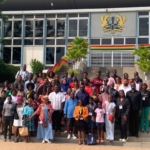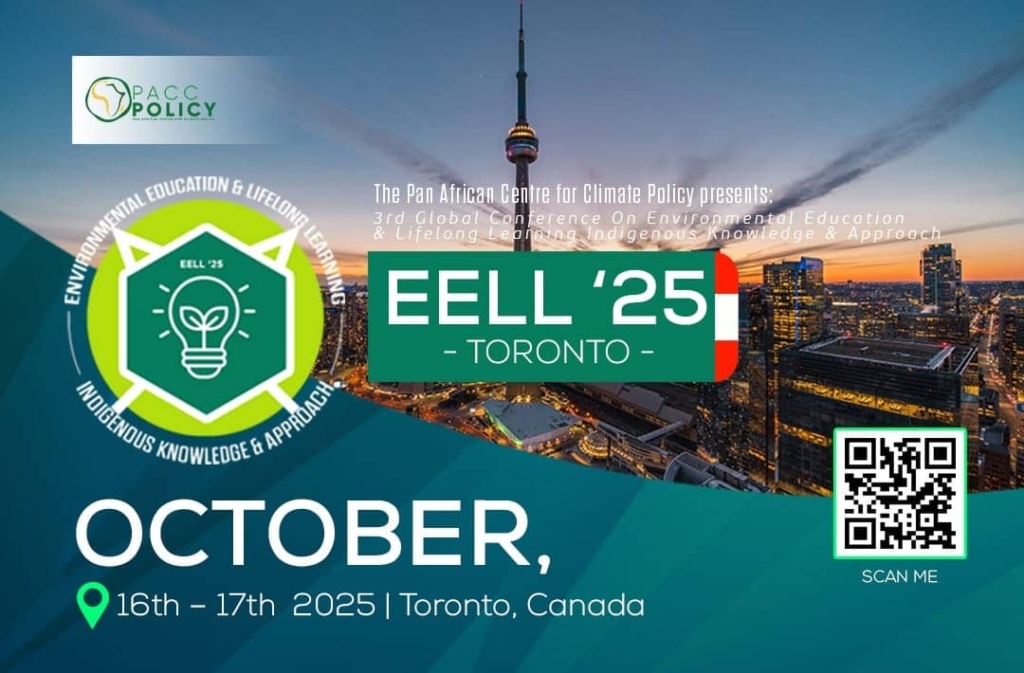
The Pan African Center for Climate Policy (PACC) is hosting its 3rd Global Conference on Environmental Education and Lifelong Learning (EELL) from October 16-17, 2025, in Canada.
The conference aims to develop a robust climate policy that will serve as a global strategy for adapting to climate change, reducing emissions, safeguarding ecosystems, and ensuring sustainable development.

According to Kwame Anane Frimpong, Executive Director of PACC Policy, the conference will highlight how sound climate policy underpins public health, economic resilience, and social equity, especially for populations most vulnerable to climate impacts like droughts and floods.
Mr. Anane Frimpong emphasised in an interview with JoyNews that environmental education and lifelong learning are key to fostering a culture of environmental stewardship.
He noted that this approach “empowers individuals across all ages to make informed choices and take action for climate resilience and conservation.”
According to the United Nations and the World Health Organisation (WHO), environmental factors contribute to approximately 13 million deaths annually worldwide.
The WHO projects an additional 250,000 climate-related deaths per year between 2030 and 2050 from causes like malnutrition, malaria, diarrhoea, and heat stress.
The impact extends far beyond human life; a recent global study noted that a 2021 climate-driven heatwave killed 10 billion barnacles and caused monkeys to fall from trees in Canada, a stark illustration of mass wildlife die-offs.
Climate-induced pressures on global food systems also threaten nutrition, particularly in vulnerable regions, and could disrupt pollination and marine productivity.
Research indicates that higher temperatures and drought could lead to 3.2 million deaths from malnutrition by 2050, with potential livestock losses of 7–10% by the century’s end.
The conference aims to address some of these challenges.
The 2025 EELL conference, themed “Balancing Prosperity and Heritage: Indigenous Lands, Big Corporations, and Sustainable Futures,” will tackle critical topics at the intersection of environmental and social justice.
The agenda includes discussions on the historical defence of land rights and sovereignty, and the development of ethical frameworks for corporate responsibility.
Mr. Anane Frimpong stressed the invaluable contribution of Indigenous and Local Knowledge (IK) to this effort.
He stated, “Indigenous and Local Knowledge (IK) offers time-tested, context-specific practices—like sustainable agriculture, water management, agroforestry, traditional burning, and ecological indicators.”
He added that these practices not only support climate adaptation and resilience but also help to preserve biodiversity, soil fertility, and ecosystem health.
The conference will, therefore, focus on integrating these traditional ecological knowledge systems with modern environmental stewardship.